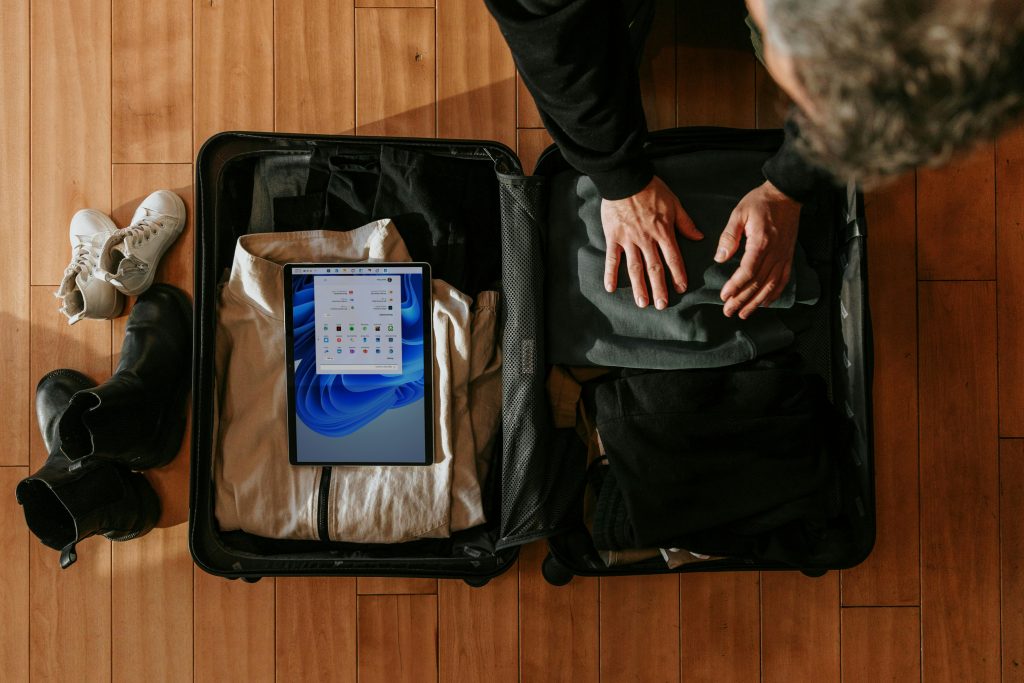The borders between business and leisure are blurring fast. What began as a fringe trend has evolved into an expectation known as bleisure travel.
For many professionals, travel is also about exploring new cities and balancing the demands of work with a richer sense of personal experience.
For corporate travel agents, this shift brings both challenges and opportunities: to rethink travel management and support travellers who want more from their journeys.
The Rise of Bleisure Travel
Bleisure travel is a natural outcome of how work itself is changing. The pandemic normalised remote work, virtual offices and flexible hours, allowing employees to extend trips without disrupting productivity.
A three-day conference in Cape Town might now turn into a week-long coastal escape, with mornings spent on Zoom calls and afternoons exploring wine farms.
For companies, this shift isn’t just about employees taking time off. It reflects a cultural evolution. Workers value experiences as much as earnings, and travel is one of the most rewarding perks of corporate life.
In return, businesses see increased job satisfaction and productivity. A well-supported bleisure policy signals trust as it shows employees they’re valued as individuals, not just as names on an expense sheet.
Why Businesses Should Embrace Bleisure
For years, many organisations treated personal travel as a distraction from business goals. Now, the numbers tell a different story. Studies show employees who combine work and leisure report higher morale, better focus and greater retention rates. It’s easy to see why.
Bleisure travel encourages mental breaks that prevent burnout while fostering creativity. A relaxed employee returns home not only refreshed but often with new ideas sparked by cultural encounters or time spent outside their usual environment.
It also humanises corporate culture by transforming travel from a logistical task into an experience of connection and discovery.
Financially, there are advantages too. If employees extend trips at their own expense, companies save on separate leisure travel costs while benefiting from discounted airfares negotiated through corporate packages. When structured correctly, it’s a win-win.
The Corporate Agent’s Role
Corporate travel management companies (TMCs) sit right at the intersection of this evolving landscape. They’re now expected to craft seamless, compliant itineraries that allow flexibility without compromising corporate policy or duty of care.
A skilled corporate agent can transform bleisure from a logistical headache into a strategic asset. They help businesses design policies that clearly outline what qualifies as personal travel, how expenses are divided and what insurance applies once the work portion ends.
Transparency is key. Travellers feel supported while companies maintain oversight.
Agents can also create custom packages where leisure add-ons are built into corporate contracts: negotiating extra nights at preferred hotels, securing discounted car rentals or arranging local experiences through trusted partners. This sees that travellers enjoy convenience and safety without administrative friction.
Policy and Compliance Considerations
Bleisure thrives when policies are clear. Without structure, even the most well-intentioned trips can lead to blurred boundaries or liability issues. Corporate agents play a pivotal role in guiding companies to define:
- Who qualifies for extended stays and under what circumstances.
- Which expenses (like additional hotel nights or flights) fall under the employee’s responsibility.
- When corporate protection ends and personal cover begins.
- How traveller safety is monitored throughout the full duration of the trip.
By embedding these rules into travel management systems, agents make sure that compliance stays effortless. Employees can plan leisure time confidently, knowing exactly what’s covered.
Technology that Enables Flexibility
Travel apps now offer curated leisure experiences, restaurant suggestions and sightseeing options linked directly to a corporate itinerary. For example, an executive attending a conference in Dubai might receive a notification recommending a desert safari or spa day extension, bookable through the same secure portal.
This level of integration gives companies complete visibility into travel activity, reducing the risk of policy breaches and seeing that all bookings remain within the approved ecosystem.
Adding to the Traveller Experience
Beyond logistics, corporate agents can elevate bleisure travel through thoughtful touches that improve comfort and enjoyment. This might mean negotiating early check-ins or late checkouts to accommodate sightseeing, arranging seamless airport transfers or suggesting wellness-focused hotels with on-site spas or coworking lounges.
Small adjustments can make a major difference. A traveller who feels supported in balancing business and leisure is more likely to engage fully during meetings and represent their company positively.
Supporting Wellbeing Through Bleisure
Travel fatigue is a genuine issue for frequent flyers. Jet lag and time away from family take their toll over time. Bleisure helps offset that toll by encouraging rest and enjoyment.
Corporate agents can reinforce this benefit by recommending itineraries that minimise exhaustion with fewer layovers, convenient accommodation and travel schedules that leave room for decompression.
Some TMCs even collaborate with wellness partners to provide mindfulness resources or gym access. When companies show concern for employees’ wellbeing through such initiatives, it strengthens organisational culture and loyalty.
The Future of Corporate Travel Management
As global mobility returns in full force, the future of business travel will be defined by personalisation and flexibility. Employees expect to shape their travel experiences rather than fit into rigid itineraries. Bleisure sits at the heart of this change.
Corporate agents who adapt early (offering customisable policies, tech-enabled tools and human-centred service) will lead the next wave of travel management. They’ll be trusted not only for their booking expertise but for their understanding of what modern professionals truly value: fulfilment and balance.
Final Thoughts
Bleisure travel is the new language of business travel. It speaks to a generation that values experiences as much as outcomes and sees no reason the two should be mutually exclusive.
For corporate travel agents, supporting this evolution means blending structure with empathy. It involves crafting systems that honour both the company’s objectives and the traveller’s humanity.
When done well, bleisure becomes a statement of how work and life can coexist meaningfully in motion.
In the end, that’s what modern corporate travel is all about: creating journeys that deliver returns not just in revenue, but in renewal.





